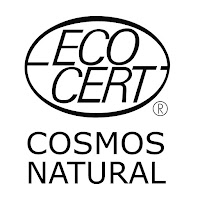HOW NATURAL ARE “NATURAL” COSMETICS ?
HOW NATURAL ARE “NATURAL” COSMETICS ?
Dear readers,
For the second blog “straight from the lab” I would like to talk about natural and organic (bio) cosmetics. It is of course nice to think that you can buy “totally natural products”, without “harmful chemicals” and free-from all the “nasties”. But how can you tell which products on the market are really natural? For a long time there has been much confusion over what can and cannot be called a ‘natural product’. It should be said that although there is still no official universal definition we are getting closer to defining what a “natural” or “organic” cosmetic should and should not contain. Read on…
Look for the label…
In order to maintain trust and honesty towards consumers, any claims such as “natural” and “organic” must be justified by the manufacturer of the cosmetic product. So, we would advise you to look for an official LABEL that has been certified by an external third party and guarantees that the products you are buying measure up to specific standards applied today by natural cosmetics manufacturers.
You can see below an example of a natural certified product label and an organic certified product label (the COSMOS standard certified by Ecocert). If you see such a label you can be sure that the product you have chosen meets certain standards and rules that ensure a high percentage of natural and organic ingredients. Many other labels exist (Natrue, Soil Association, Cosmebio, Ecogarantie… to name but a few) and the corresponding standards are available via the internet so you can easily check the requirements yourself. All these labels impose high standards in the choice of ingredients that the manufacture can and can’t use and of course natural, naturally-derived and organic ingredients are imposed. In the lab, as formulators, we are therefore limited in our choice of ingredients for natural cosmetics and have to use our creativity to the full!
What is COSMOS ?
COSMOS is an international non-profit-making organization born out of the union of the 5 main European associations involved in natural and organic cosmetics back in 2002. It has evolved over the years to become a unified global standard in natural and organic beauty with over 5000 certified products, 74% of which are certified Organic as opposed to Natural. The values of COSMOS closely match our own at Codibel and we aim to materialize these values through our new ranges of products, such as Pure Elements Organics.
COSMOS also aims to improve the overall sustainability of cosmetics whether it is through the origin of the raw materials used, the type of packaging used, or the biodegradability at the end of the life cycle. We believe this is the right way forward as a responsible manufacturer, and indeed is the ONLY way forward if we want to preserve the reserves that our planet can offer for the future generations.
So why do you still see some “nasties” listed as ingredients in natural cosmetics?
Don’t be surprised if you do see a few ingredients listed on the product that are not 100% natural. They are derivedfrom natural ingredients through special processes that limit harm to the environment. These processes are known as “green chemistry”. Some allowances are also made for very small quantities of ingredients that are judged to be non-harmful to the environment in the minute quantities that are used, but are essential in order to guarantee the stability and correct preservation of the products over their life-time.
And don’t forget, “natural” does not always rhyme with “nice”. Some of the most potent poisons known to man are to be found in nature, so we always have to make sure that the natural ingredients we are using will not cause any irritation to your skin. Under European law, all cosmetic products placed on the market must undergo strict safety assessments to make sure that they are always harmless under normal conditions of use, and natural products are no exception to this rule.
What about Apps such as “Yuka”, don’t they guarantee transparency for the consumer ?
The latest trend is to scan the ingredient list and check via an App whether the product scores well on a rating scale which is specific to each App. The problem with this is that there is no unified way of scoring…all Apps score differently, and furthermore the Apps do not take into account the individual amounts of each ingredient present, only the fact that it is present or not. There is therefore no way that the overall toxicity or harmlessness of the product can be assessed at this point in time simply by scanning the ingredient list. So, although they may be useful in highlighting certain controversial ingredients, do be careful before drawing any hasty conclusions.
Conclusion:
The cosmetics industry is making great progress in responding to “conscious consumerism” by manufacturing cosmetic products that not only deliver high performance but also live up to environmental-friendly standards. We hope to have provided some insight into the way we at Codibel are facing up to this critical challenge and also to have highlighted the importance for you - as a consumer - to look for an appropriate and official third party certification label on the “natural” and “organic” products you choose to purchase.
Check out our new PURE ELEMENTS ORGANICS range of luxury professional products for hairdressers, certified by Ecocert under the COSMOS ORGANIC certification scheme and produced in our environmental-friendly factory!





Comments
Post a Comment